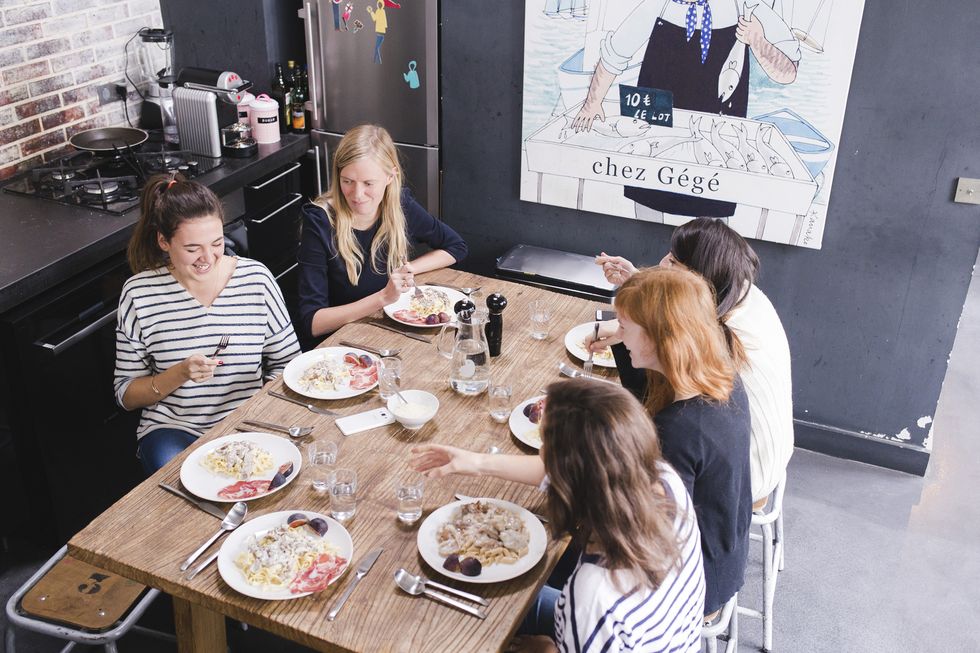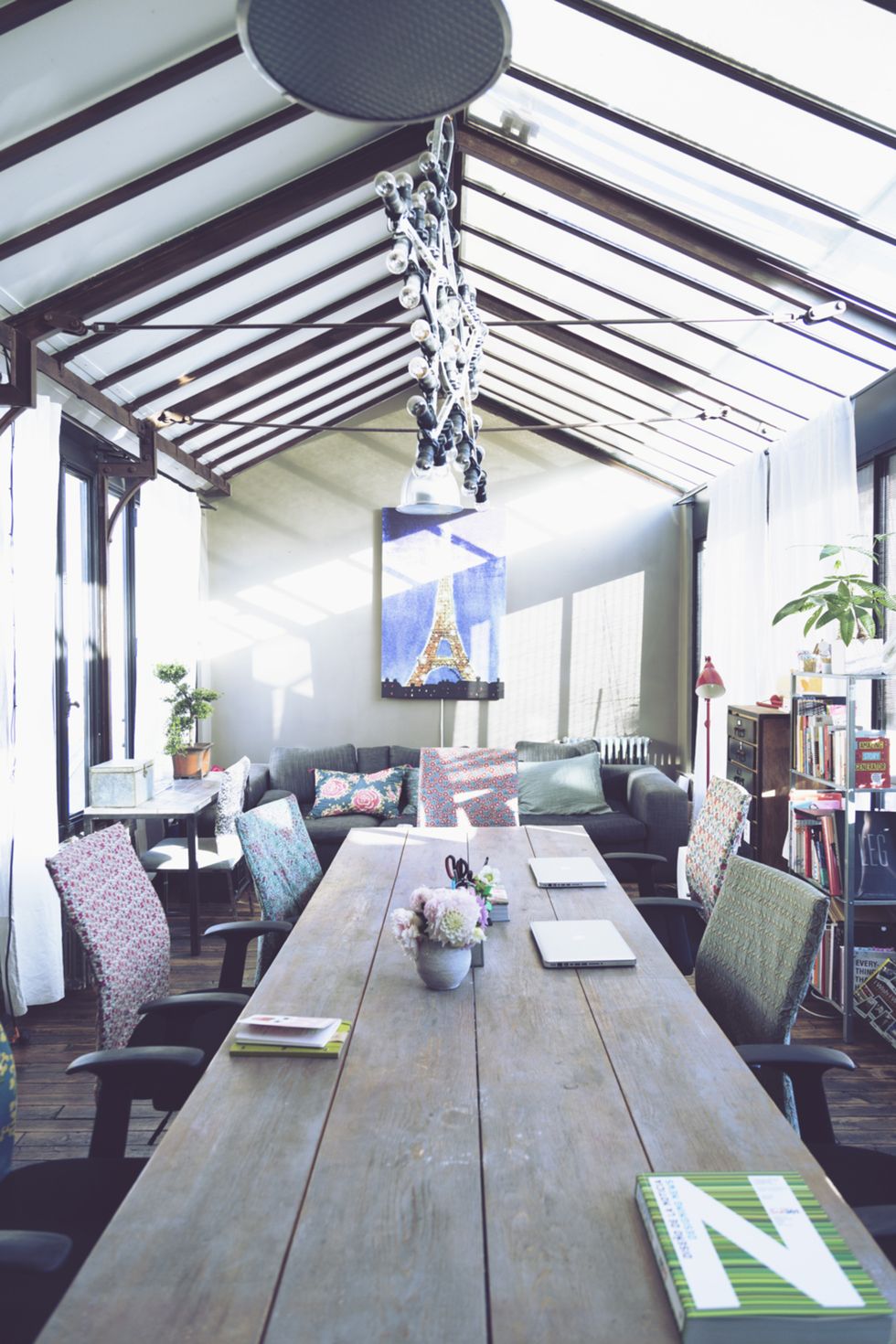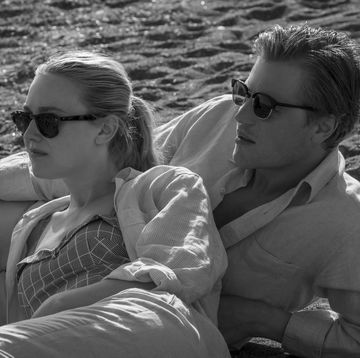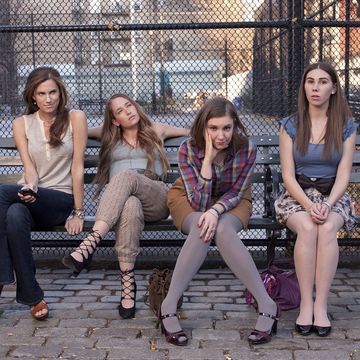How to Dress Like a French Girl
Why French Women Don't Get Fat
If you were to go by the last decade of magazine titles alone, you could easily assume France, a nation of 66 million, was solely populated by thin, stunning women. There's no doubt the country that brought us both Coco Chanel and the restorative properties of Clinique Moisture Surge is filled with stylish women, but the monolithic idea of the quintessential French Girl, especially of "French Girl cool" has become something of a marketing cliche thanks to screen actresses like Brigitte Bardot and Anna Karina.
Look beyond the red lips and perfectly tousled hair, though, and you'll see that French women are gaining recognition for something else entirely. In 2016, the World Economic Forum ranked Paris the 9th city worldwide for female entrepreneurs (with top honors going to the working women of New York City and Silicon Valley clocking in at number two). According to statistics from tech “incubateur girl power" Paris Pionnières, in collaboration with starther.org, the city is now the European capital of women start-ups, with 21 percent of Parisian women now classified as entrepreneurs. This means almost 1 in 4 Parisian women are currently striking out on their own, many in the traditionally male tech sectors.
This begs the question: could the next big "French Girl” style trend actually be steering your own Fortune 500 company?
With her tailored suit tops, ombre hair, and impossibly perfect skin, Fanny Péchiodat, creator of My Little Paris, the city’s first media startup, is the quintessential “French Girl” we all aspire to. She’s also one of the scene’s big success stories. Nine years ago she created an email blast meant to share quirky neighborhood finds, like a flower shop that doubled as a speakeasy. Six months later her list-serve had grown to 10,000. After recruiting co-founders Anne-Flore Chapellier, Céline Orjubin, and artist Kanako Kuno, she officially named it My Little Paris, working out of her living room as they built a loyal fanbase of 4 million subscribers and a business valued at $42 million. Today, with a team of 130, and satellite branches in Marseille and Lyon, her empire has added an in-house beauty brand and two monthly subscription boxes dubbed My Little Box—a French twist on Birchbox—filled with limited-edition products, and La Parisienne, a twice-weekly newsletter to inspire women to “look like a Parisian, eat like a Parisian, dress like a Parisian, think like a Parisian—and love like a Parisian.”
Have these savvy businesswomen actually managed to repackage the ubiquitous “French Girl” stereotypes, created and cultivated by Americans and advertisers for years, and sold them back to us with a neat little bow at a profit? If so, it would be the kind of ingenious marketing worthy of Peggy Olson.
The team has also expanded to bring the “French Girl” mystique to real life. Operations were recently moved to a Pinterest-perfect restored carousel factory overlooking Sacré Couer. They have also decorated a five-story villa in Montmartre with soft pastels and mid-century modern lighting, where colleagues can stay, co-work, host communal dinners, and collaborate on projects.
“People underestimate the Parisian startup scene,” Péchiodat explained. “It's growing remarkably fast, especially for women. When we launched, the startup culture was largely dominated by men, yet five out of six of MLP's founders were female. Today, 75 percent of our staff are women. There's a level of social engagement that comes with being an entrepreneur that I find incredibly inspiring.”
One of Péchiodat’s favorite new projects is Station F, which this summer will unveil the largest startup campus of its kind globally. Under director Roxanne Varza, former editor of TechCrunch France and the driving force behind Microsoft’s start-up activities in France, it will host over 3,000 startup desks, event spaces, tech companies, investors’ offices, a maker-space, coffee-shop and restaurant, with Facebook and E-commerce giant Vente-Privee among the early joiners.
“We're seeing more and more women in tech,” said Varza, who believes a confluence of factors, from the financial implications of Brexit to the skyrocketing prices in Silicon Valley, has led to France’s rise as a tech capital. “Entrepreneurs are searching for alternatives, and many look to France as a great place to launch a company.”
Long before Fleur Pellerin left her job as French Minister of Culture in 2016 to found Korelya, a venture-capital firm bridging investments between Europe and Asia-based tech startups, French PM Bernard Cazeneuve credited her as the inventor of French Tech. “I had worked so hard as a minister on fostering the French digital ecosystem that I wanted to continue to contribute,” she explained. Raising €100 million in funding, she initiated talks with Hae-Jin Lee, the founder of NAVER, a $40 billion internet champion. “We shared the same understanding of the way the digital revolution brings disruption in every aspect of society, economy, sovereignty and democracy. This common vision made us want to build a project together.” Today, Pellerin pursues the same objectives, helping French and European startups expand in Europe and worldwide.
There there's 26-year-old Maiana Bertola, the founder of Edie & Watson, a tech and fashion company that creates anti-blue light eyewear to protect sensitive corneas from screen damage, who never intended to become an entrepreneur. “I studied law at the Sorbonne but realized I was much more interested in strategy. I was drawn to the freedom to create, and the luxury of doing what pleases me.”
At Edie & Watson, Bertola oversees everything from manufacturing to photoshoots, PR, and social media. “The French are very proud people, so I think a lot of the drive comes from a desire to catch up to Silicon Valley and become a major actor on the global tech scene.” She sees the French capital as a great alternative, especially for women trying to escape some of the more unpleasant aspects of Silicon Valley work culture. “In Paris, if you are a woman and want to run your own firm, create an E-shop, develop software, or launch your own app, nobody is going to question your competence or legitimacy.”
For the record, French women have something of a head start in the tech world over their Silicon Valley counterparts. Under Emmanuel Macron, the government introduced a new initiative to promote gender equality in tech, in partnership with over a dozen female-driven companies. Meanwhile, programs like La French Tech, designed to encourage homegrown tech entrepreneurship, and its offshoot, the French Tech Ticket, which helps foreigners establish businesses, have also greatly contributed to the success of the French female entrepreneur.
For Mathilde Vallat, who left the corporate world to become the CMO of Devialet, a leader in sound technology with 108 patents on their “Made in France” speakers, Paris’s dynamic tech scene is a “particularly strong space for women aged 25-30 who want to build their own paths, but it's also a fit for women in their 40s, who have been trying to find a balance between a professional career, kids, and the rules they want to set for themselves.”
Even though France has a generous social safety net, especially in reference to maternity leave programs, merging the startup world’s 24/7 mindset with a more relaxed “French” way of life has been a balancing act of its own. As one insider told us, “we work extremely hard, long hours, but our weekends are sacred. They’re off-the-grid time.”
Vallat's advice for those hoping to thrive in the Paris tech scene?
“Surround yourself with the right people, resilient, smart, brave, joyful, who can teach you what you don’t know, and feel free enough to contradict you. You’ll feel so much stronger.”
Perhaps these are the kind of “French Girl” traits we should all be copying—and perhaps it’s time the "French Girl" cliche got an update. Anyone care for an IPO with their café au lait?















